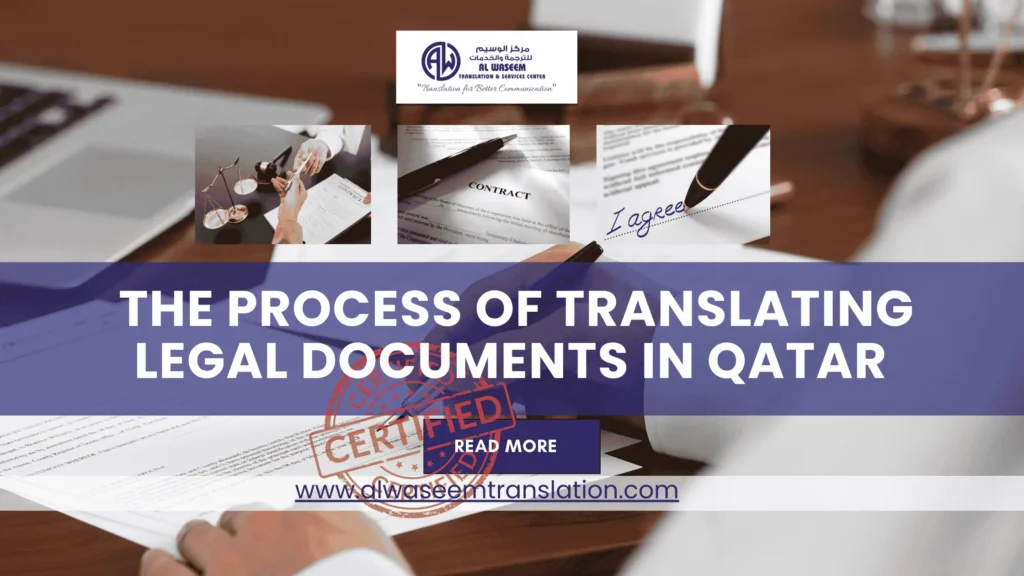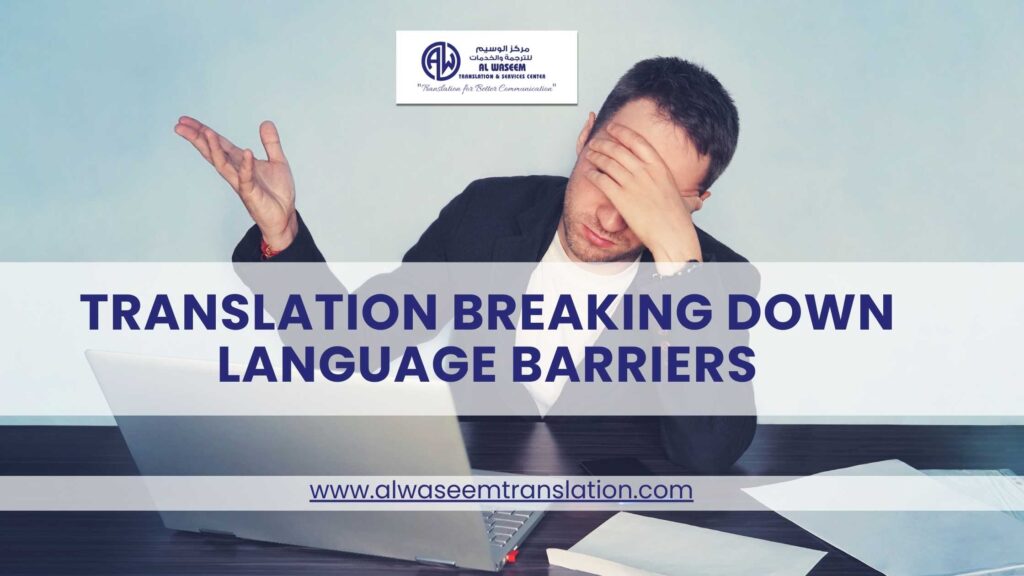In an increasingly globalized world, communication across languages is crucial. As businesses expand into new markets, the need for accurate, culturally sensitive translations becomes essential. While machine translation tools like Google Translate can handle simple phrases, they often fail in complex industries where precision is critical. In this article, we’ll explore the top industries that demand high-quality human translation services, from the legal and medical fields to the fast-paced world of eCommerce.
 Expanding into international markets opens up endless opportunities, but it also presents significant challenges—especially when it comes to communication. Language barriers can lead to misunderstandings, compliance issues, and even brand reputation damage if translations are inaccurate or culturally inappropriate.
Expanding into international markets opens up endless opportunities, but it also presents significant challenges—especially when it comes to communication. Language barriers can lead to misunderstandings, compliance issues, and even brand reputation damage if translations are inaccurate or culturally inappropriate.
The Role of Translation in Business Expansion
 Expanding into international markets opens up endless opportunities, but it also presents significant challenges—especially when it comes to communication. Language barriers can lead to misunderstandings, compliance issues, and even brand reputation damage if translations are inaccurate or culturally inappropriate.
Expanding into international markets opens up endless opportunities, but it also presents significant challenges—especially when it comes to communication. Language barriers can lead to misunderstandings, compliance issues, and even brand reputation damage if translations are inaccurate or culturally inappropriate.
Why Machine Translation Isn’t Enough
While machine translation technology has improved, it still lacks the nuanced understanding required in professional settings. Machines struggle with context, idiomatic expressions, and industry-specific jargon. For sectors like legal, medical, or financial, relying on automated translation can result in costly mistakes. Only human translators can fully grasp the cultural and linguistic subtleties needed for effective communication.The Need for Cultural Sensitivity and Accuracy
Translation isn’t just about converting words from one language to another; it’s about ensuring the message resonates with the target audience. In industries like marketing and media, emotional appeal is key. A direct translation might miss the tone or context, making a campaign ineffective or even offensive. Human translators bring cultural sensitivity and an understanding of local customs, which is essential for global success.Legal Sector
The legal industry is one of the most translation-dependent fields. Legal documents require extreme precision, as even the slightest mistranslation can have severe legal consequences.Legal Jargon and Precision in Translation
Legal language is complex and highly specialized. Terms that may seem similar in different languages can have vastly different legal interpretations. Human translators with legal expertise are essential for accurately translating contracts, court documents, patents, and more.Common Legal Documents Requiring Translation
- Contracts and agreements
- Patents and intellectual property documents
- Court transcripts
- Immigration documents
- Regulatory filings
Legal Consequences of Poor Translation
A mistranslated clause in a contract can lead to disputes, financial loss, or even lawsuits. In legal settings, precision isn’t just a preference—it’s a requirement. Poor translation could also result in non-compliance with local laws, risking penalties or revoked licenses.Medical and Healthcare Industry
The stakes are incredibly high in the medical industry, where patient care and safety depend on clear communication.Medical Terminology and Accuracy
Medical terminology is complex and must be translated with absolute accuracy to ensure the proper diagnosis, treatment, and care. Human translators with specialized medical knowledge can interpret clinical jargon correctly, making their role indispensable.Patient Care and Safety
When it comes to patient information, informed consent forms, and medical instructions, any errors can put lives at risk. Healthcare providers need translators who understand the specific language of medicine and the gravity of these documents.Translation in Pharmaceutical and Clinical Trials
The pharmaceutical industry relies heavily on translation, particularly in clinical trials where data from international participants must be accurately recorded and interpreted. Inaccurate translations can skew trial results, leading to harmful consequences.eCommerce and Retail
The rise of online shopping has made translation essential for businesses aiming to tap into global markets. From product descriptions to legal compliance, translation plays a key role in the eCommerce space.Product Descriptions and User Experience
To effectively sell products across borders, businesses must provide localized product descriptions that are not only accurate but also engaging. Customers are more likely to buy when they fully understand what they are purchasing. Human translation ensures the descriptions capture nuances that resonate with the target market.Localization for Global Markets
Localization goes beyond just translating words—it involves adapting content to fit the cultural context of the region. This could include changes in measurement units, currency, or even tone and style of communication. In eCommerce, this level of customization can significantly improve user experience and drive sales.Legal and Regulatory Requirements in eCommerce Translation
Each country has its own set of laws governing online sales. For instance, Europe’s GDPR (General Data Protection Regulation) requires that privacy policies be available in multiple languages. Ensuring these translations are legally sound and accurate is crucial for maintaining compliance.Financial Sector
Accuracy and clarity are non-negotiable in the financial industry, where miscommunication can have serious financial repercussions.Financial Reports and Contracts
Financial documents such as balance sheets, income statements, and contracts often involve intricate terminology that only expert human translators can handle. Precision is key to avoiding misinterpretations that could impact business decisions or investor relations.International Regulations and Compliance
Different countries have unique regulatory frameworks, especially in finance. Translating these regulations accurately is critical for compliance and for maintaining operations in foreign markets.Translation of Banking Services
Banks and financial institutions increasingly serve a global clientele. Translating services like online banking interfaces, loan agreements, and customer support documentation into multiple languages is essential for customer satisfaction and regulatory adherence.Marketing and Advertising
Marketing campaigns rely on emotion, humor, and cultural nuances—all elements that are difficult for machine translation to capture.Adapting Campaigns for Global Audiences
What works in one country may not work in another. A marketing message that resonates with U.S. audiences may fall flat in Japan or Italy. Human translators help adapt these messages while retaining their original intent and emotional appeal.Cultural Relevance and Emotional Appeal in Marketing
In marketing, it’s not just about translating words—it’s about translating meaning. For example, humor, idioms, and cultural references often don’t translate well and need to be adapted creatively. Human translators help ensure that your message remains relevant and impactful in different cultural contexts.Risks of Using Machine Translation in Marketing
Relying on machine translation for your marketing materials could lead to awkward or nonsensical phrases that damage your brand’s reputation. Worse, a poorly translated slogan or ad could offend a culture, resulting in a PR disaster.Technology and Software
The tech industry often requires translations of highly technical materials, making human expertise invaluable.Localization of Software Interfaces
When software is rolled out to international markets, the user interface (UI) and user experience (UX) must be translated for clarity and usability. Poor translations can lead to confusion, errors, and ultimately customer dissatisfaction.Documentation and User Manuals
Tech companies produce a vast amount of documentation, from user guides to developer instructions. Translating these materials accurately ensures that users can fully understand and interact with the product, no matter their native language.The Importance of Context in Technical Translation
Technical translation demands context-specific knowledge. Without understanding the intricacies of the software or technology, a machine translation might interpret technical terms incorrectly, leading to confusion or malfunction.Media and Entertainment
From movies to video games, media content is consumed globally, which means translation is vital for reaching a wider audience.Subtitles and Dubbing for Global Audiences
Whether it’s a blockbuster film or a TV show, audiences around the world expect content in their native language. Subtitles and dubbing require more than just word-for-word translations; they need to capture the tone, emotion, and cultural references of the original.Translation for Video Games and Digital Content
Video games have become a global phenomenon, but to succeed in international markets, they must be localized. This includes not only translating dialogue but also adapting character names, backstories, and even game mechanics to suit cultural preferences.Cultural Sensitivity in Entertainment
Cultural references in media can be tricky. What’s considered humorous or acceptable in one country may be offensive in another. Human translators help ensure that content is sensitive to cultural norms and values.Travel and Tourism
The travel industry thrives on cross-cultural communication, making translation a necessity for success.Translating Travel Guides and Brochures
Travel guides, brochures, and websites must be accurately translated to ensure travelers can access the information they need in their own language. This enhances their overall experience and helps build trust with travel service providers.Communication with Global Travelers
Travel companies need to communicate with customers from all over the world. From booking confirmations to customer service inquiries, clear and accurate translation is key to providing excellent service.Enhancing Customer Experience Through Translation
A seamless experience in a foreign country can be greatly enhanced by providing well-translated materials. This makes it easier for travelers to navigate and enjoy their trip, leading to positive reviews and repeat business.Conclusion
The demand for high-quality human translation services is only increasing as industries continue to expand globally. Whether it’s legal documents, medical records, or marketing campaigns, human translators offer the precision and cultural sensitivity that automated tools simply can’t match. By investing in professional translation services, businesses can avoid costly mistakes and ensure their message is understood clearly and accurately across borders.FAQs
Why is human translation more accurate than machine translation?
Human translators understand context, cultural nuances, and idiomatic expressions, which machines often miss, making their translations more accurate.
What are the risks of using automated translation in legal documents?
Automated translations can lead to misinterpretations, resulting in legal disputes or non-compliance with regulations.
How does translation impact the healthcare industry?
Accurate translation is crucial for patient safety, as mistranslations in medical documents can lead to misdiagnoses or improper treatment.
Why is localization important in eCommerce translation?
Localization adapts not just the language but also the cultural context, helping businesses connect better with global customers.
How can poor translation affect global marketing campaigns?
Poor translation can lead to misunderstandings, offend audiences, or weaken the emotional appeal of marketing messages, damaging a brand’s reputation.



